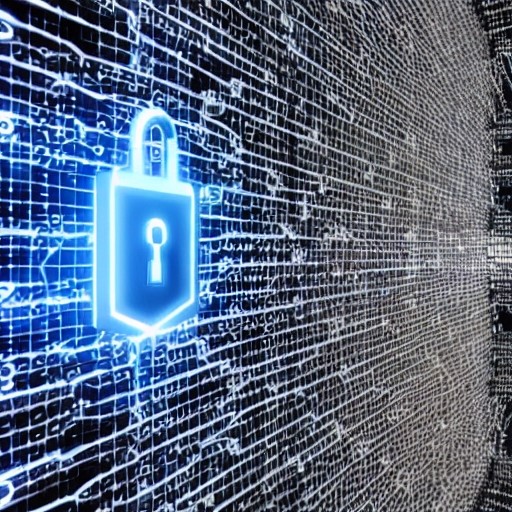
Quantum Computing Revolutionizing Cybersecurity: The Future of Encryption
Quantum Computing Revolutionizing Cybersecurity: The Future of Encryption
In a world where data breaches and cyberattacks are becoming increasingly sophisticated, the need for robust cybersecurity measures has never been more critical. As traditional cryptographic methods face the threat of being easily cracked by powerful quantum computers, a new era of cybersecurity is on the horizon. Quantum computing, with its exceptional computational power, holds the potential to transform the field of cybersecurity, offering unparalleled solutions for encryption and data protection.
What is Quantum Computing?
We are entering a big data world in which the information we need to store grows exponentially, there is a need for more ones and zeros and silicon transistors to process it. For the most part, classical computers are limited to doing one thing at a time, so the more complex the problem, the longer it takes. A problem that requires more power and time than even today’s supercomputers can accommodate is called an “intractable problem”. These are the problems that quantum computers are predicted to solve.
Quantum computers use quantum bits, or “qubits,” and because of the peculiar nature of quantum physics, qubits can exist in a state called superposition where they are both 1 and 0 at the same time. This essentially lets each qubit perform two calculations at once. The more qubits that are quantum-mechanically linked (i.e. entangled) within a quantum computer, the greater its computational power can grow, in an exponential fashion.
Quantum Computing Revolutionizing Cybersecurity
Quantum computing is a rapidly developing field with the potential to revolutionize many industries, including cybersecurity. Quantum computers are able to solve certain types of problems much faster than traditional computers, and this could be used to break current encryption methods. This could pose a serious threat to cybersecurity, as it would make it easier for attackers to steal sensitive data.
The Threat to Traditional Cryptography
The advent of quantum computing poses a significant threat to the cryptographic algorithms widely used today. Most notably, the RSA and elliptic curve cryptography (ECC), which underpin the security of modern communication protocols, are vulnerable to attacks by quantum computers. Shor’s algorithm, a quantum algorithm capable of factoring large numbers exponentially faster than classical algorithms, undermines the foundation of these encryption methods.
Quantum Key Distribution (QKD)
One of the most promising applications of quantum computing in cybersecurity is Quantum Key Distribution (QKD). QKD exploits the principles of quantum mechanics to create unbreakable encryption keys. By leveraging the fundamental properties of quantum mechanics, such as the no-cloning theorem and the observer effect, QKD ensures that any attempt to intercept or eavesdrop on the encrypted communication will disturb the quantum state, alerting the communicating parties to the presence of an intruder.
Post-Quantum Cryptography (PQC)
Recognizing the vulnerability of existing cryptographic systems, the field of post-quantum cryptography (PQC) has emerged. PQC aims to develop cryptographic algorithms that can withstand attacks from both classical and quantum computers. Researchers are exploring various techniques such as lattice-based, code-based, and multivariate polynomial-based encryption schemes to design encryption methods that are resistant to quantum attacks.
Enhanced Threat Intelligence and Machine Learning
Quantum computing also promises to revolutionize threat intelligence and machine learning in cybersecurity. With its immense computational power, quantum computers can perform complex data analysis and pattern recognition, enabling more effective detection of malware, intrusion attempts, and network anomalies. Quantum machine learning algorithms are being developed to provide more accurate predictions and to enhance the capabilities of intrusion detection systems and antivirus software.
Challenges and Future Directions
While the potential of quantum computing in cybersecurity is vast, several challenges remain. Developing practical quantum computers with stable qubits, reducing error rates, and improving scalability are key areas of focus. Furthermore, integrating quantum technologies with existing infrastructure and protocols requires careful consideration and standardization efforts.
Conclusion
Quantum computing holds immense promise for revolutionizing cybersecurity. As quantum computers become more powerful, they present both opportunities and challenges in the realm of data protection. Quantum Key Distribution and Post-Quantum Cryptography offer promising avenues to secure communications against quantum attacks. Additionally, quantum computing’s potential to enhance threat intelligence and machine learning applications will undoubtedly shape the future of cybersecurity. As the quantum revolution unfolds, it is crucial for researchers, industry professionals, and policymakers to collaborate in establishing robust frameworks and solutions to ensure a secure digital future in the quantum era.
Monitoring Remote Sessions
With more employees working from home, companies are seeking ways of monitoring remote sessions. One compelling case can be made for recording remote sessions for later playback and review. Employers are concerned that in the event of a security breach, they won’t be able to see what was happening on users’ desktops when the breach occurred. Another reason for recording remote sessions is to maintain compliance, as required for medical and financial institutions or auditing for business protocols, etc.
TSFactory’s RecordTS v7 will record Windows remote sessions reliably and securely for Microsoft RDS, Citrix, and VMware systems along with Azure, AWS and other hosting environments; cloud based, on-prem or hybrid configurations.
Click here to learn more about secure remote session recording.
Sources
https://quantumxc.com/blog/quantum-computing-impact-on-cybersecurity/
https://www.americanscientist.org/article/is-quantum-computing-a-cybersecurity-threat
https://www.tripwire.com/state-of-security/impact-quantum-computing-cybersecurity
https://www.openaccessgovernment.org/quantum-enabled-cybersecurity/141549/
https://www.meer.com/en/71834-implications-of-quantum-computing-in-cybersecurity